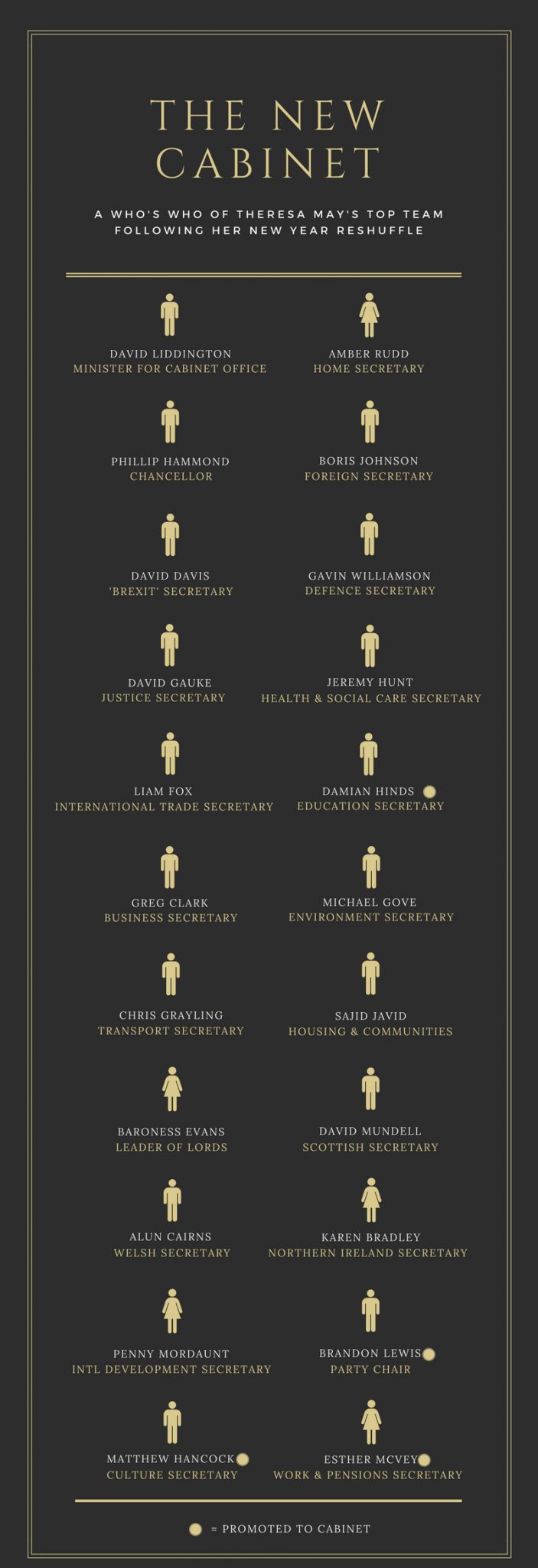With our contentious escape from Europe pending, the ‘reshuffle’ meant much more than the hiring and firing of our governmental powers that be for those on both sides of the Channel.
At face level, last week’s ministerial changes actually had very little to do with Brexit.
When the clock struck reshuffled, Theresa May had meddled far and wide – as expected – but chose not to touch her beloved Brexit brotherhood of David Davis, Boris Johnson and Michael Gove with a ten foot pole.
Which, paired with its ceaseless controversy, wasn’t such a bad idea.
Over the past year, even the most impartial and respected British media outlets have circled back to Brexit at the hint of a link. The reshuffle was an opportunity to drive the conversation elsewhere.
That, and a missed opportunity to advance her ideal (read: arguably impossible) Brexit agreements.
While a handful of her minor PR-minded “refreshes” promoted both ethnic minorities and female MPs, the majority of May’s decisions fell flat or were met with widespread criticism from all sides.
Jeremy Hunt refused to be moved to a new position as business secretary and instead, managed to leave his meeting with social care added to his portfolio.
Justine Greening, when asked to become work and pensions secretary, quit government altogether.
The appointment of Maria Caulfield, the new Conservative vice chair for women, and known opposer of the decriminalisation of abortion, was baffling enough.
Each move dismissed and appointment gaffed came across as a deterioration of the prime minister’s power.
At a time when the European Union (us, temporarily included) needs to see May as a strong and decisive leader.
Instead of displaying control, she managed to cast herself as the victim of a divided and fragile party.
Candida Jones, Deputy Leader of Wandsworth Labour, said: “It’s a party that’s in office but not in power. You know, the reshuffle showed no strategic direction, it made no significant changes – it was more of sort of a resniffle than a reshuffle.”

Unfortunately, the closest thing to a Brexit move made during the reshuffle is at complete odds with her apparent position on the matter.
Suella Fernandes, chair of the Brexit-backing European Research Group, was made a junior minister at the Department for Exiting the European Union (DexEU) after coordinating appeals to take the UK out of the single market and undermining May’s transitional deal aspirations.
Mrs Fernandes also believes leaving the EU without a deal would be “great” for Britain, according to an article she penned for grassroots website ConservativeHome.
Exiting the EU will indisputably affect each and every one of the departments concerned in this reshuffle. Perhaps, in its eventuality, so dramatically the promoted and demoted ministers will be able to do very little but damage control.
In her sometimes idealised land where Brexit means the UK will leave the single market and customs union while retaining all the advantages of both (ha!), a maligned reshuffle offers little confidence for future negotiations.
As a distraction technique, however, maybe it didn’t do so bad.




